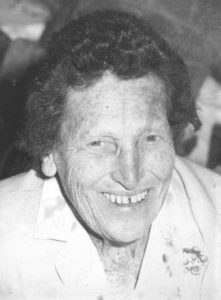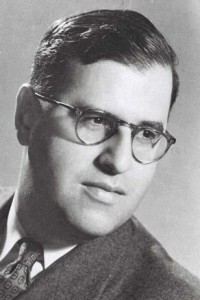 Born in South Africa to poor immigrants from Russia, Tikvah Alper (1909-1995) showed a talent for maths and sciences at an early age. At age 20, she traveled to Berlin to work on her doctorate with former Jew of the Week Lise Meitner, where she published an award-winning paper on delta rays. Alper had a son who was born deaf, so she moved to the U.S. to study diligently from the best experts in the field, herself becoming a teacher for the deaf. Returning to South Africa, Alper was a professor at Witwatersrand University, where she became famous for championing black people’s rights, causing her to draw the ire of the government. For opposing apartheid, she lost her position at the National Physics Laboratory, and nearly lost her passport, too. Alper fled to Britain, where she worked for the remainder of her life in a radiobiology lab. It was there that she researched various brain-eating disorders and proposed a new mechanism of disease: an infectious protein. At the time, the idea was laughable, but it has since been proven and confirmed (now called a “prion”), especially after the mad cow disease scare. Alper’s book Cellular Radiobiology became the bible for radiobiologists. All of these things, as well as her iconic feminism, made her a heroic figure for many around the world, and her London home became a meeting place for the best and brightest in the field of radiobiology. Alper enjoyed sailing, and continued to travel the world well into her 80s.
Born in South Africa to poor immigrants from Russia, Tikvah Alper (1909-1995) showed a talent for maths and sciences at an early age. At age 20, she traveled to Berlin to work on her doctorate with former Jew of the Week Lise Meitner, where she published an award-winning paper on delta rays. Alper had a son who was born deaf, so she moved to the U.S. to study diligently from the best experts in the field, herself becoming a teacher for the deaf. Returning to South Africa, Alper was a professor at Witwatersrand University, where she became famous for championing black people’s rights, causing her to draw the ire of the government. For opposing apartheid, she lost her position at the National Physics Laboratory, and nearly lost her passport, too. Alper fled to Britain, where she worked for the remainder of her life in a radiobiology lab. It was there that she researched various brain-eating disorders and proposed a new mechanism of disease: an infectious protein. At the time, the idea was laughable, but it has since been proven and confirmed (now called a “prion”), especially after the mad cow disease scare. Alper’s book Cellular Radiobiology became the bible for radiobiologists. All of these things, as well as her iconic feminism, made her a heroic figure for many around the world, and her London home became a meeting place for the best and brightest in the field of radiobiology. Alper enjoyed sailing, and continued to travel the world well into her 80s.
This Friday Night is Tu B’Shvat! Click to Learn More About This Little-Known Holiday
Words of the Week
A person’s main vitality lies in his intellect. One who is not using his intellect to its full potential is considered asleep. Many people who seem to be alive are in fact sleeping their lives away…
– Rebbe Nachman of Breslov

